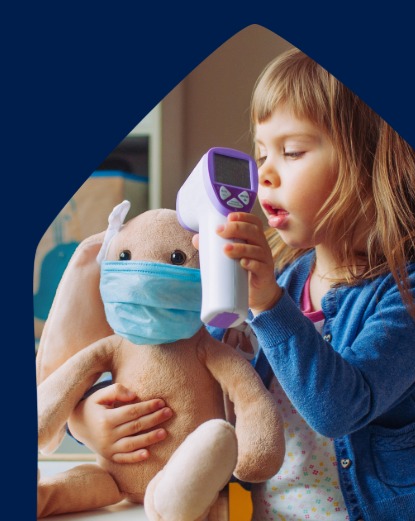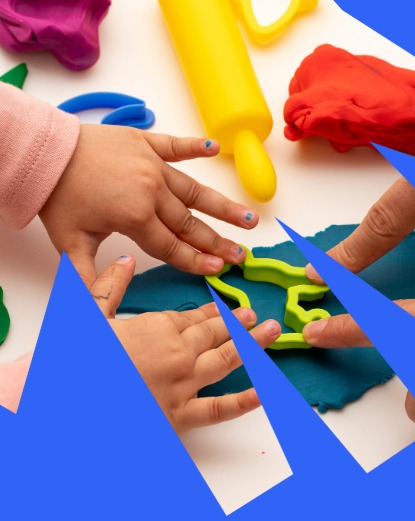Role play is far more than make-believe!
It helps children develop language, social skills, creativity, and confidence, while supporting their understanding of the world. At Little Blue Door, we celebrate role play as a vital part of early childhood learning. At Little Blue Door, we love watching children step into a world of imagination. Whether they are running a pretend shop, cooking in the play kitchen, or caring for dolls and teddies, role play is always a highlight of the day. What may look like simple fun is actually an important way for children to learn, practise different skills, and express themselves.
Language and Communication
Through role play, children expand their vocabulary, practise conversations, and build confidence in expressing their ideas. Everyday scenarios become opportunities to talk, listen, and learn new words.
Social Skills
Role play encourages turn-taking, cooperation, and sharing. By taking on roles, children learn how to work with others and see situations from different perspectives.
Problem-Solving and Creativity
Imaginative play helps children think creatively and come up with their own ideas. From deciding what to cook in the play kitchen to solving a problem in the role play shop, children learn how to plan, adapt, and explore.
Emotional Development
Role play provides a safe and nurturing space for children to explore emotions. Acting out different situations allows them to understand feelings, develop empathy, and build self-esteem.
Understanding the World
Whether pretending to be a firefighter, doctor, or shopkeeper, role play helps children make sense of the world around them. They explore real-life roles and gain a deeper understanding of the world they live in.








